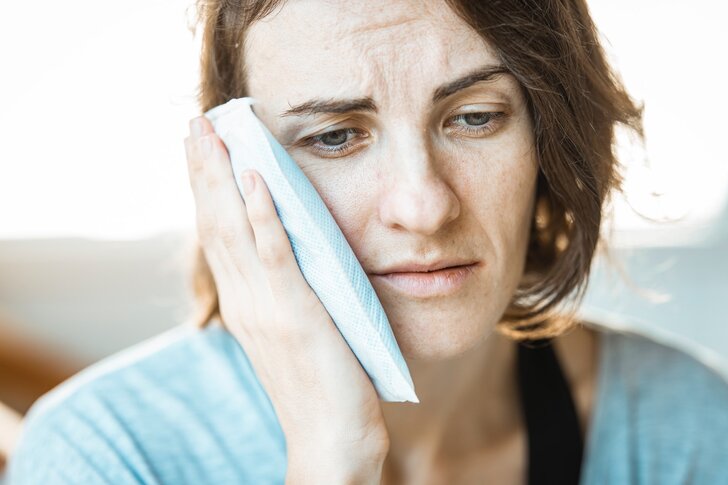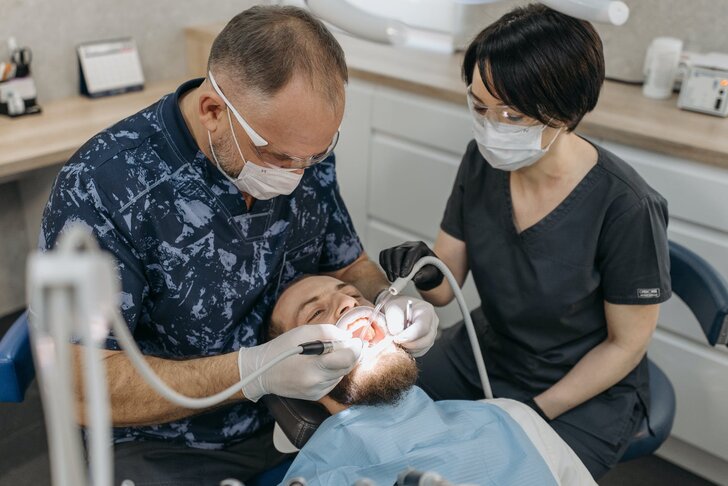
Understanding Oral Cancer & Why It Happens

Are you having a sore in your mouth that isn’t healing? While your sloppiness may tell you that it’s nothing more than a cold sore (Herpes Labialis) and that relying on antiviral creams would be enough, we’d like to bring to your attention that cold sores usually go away within 1-2 weeks. So, surely it isn’t just a cold sore.
According to the American Cancer Society (ACS), oral cancer accounts for roughly three percent of all cancers diagnosed per annum in the United States, which is about 53,000 new cases each year. ACS even estimates that in 2021, over 54,000 people could be diagnosed with oropharyngeal cancer or oral cavity cancer in the US.

Engin Akyurt/Unsplash | According to the American Cancer Society (ACS), oral cancer accounts for roughly three percent of all cancers diagnosed per annum in the United States
Now what exactly is Oropharyngeal Cancer? What causes this and how to detect this at an early stage? Is it remediable? We understand that all these questions are crowding your head. That’s why we’ve tried our best to compile the answers to all your possible queries in this post.
What is Oral Cancer?
Variously known as mouth cancer or oral cavity cancer, a tumor that develops in the tongue, lips, and floor of the mouth, or a tumor that develops in the middle region of the throat, including the tonsils and base of the tongue known as oral cancer. The one that lines the squamous cells is known as squamous cell carcinomas (cancers), and the one that is found in the oropharynx is known as oropharyngeal cancer.
Despite what you may think, not all tumors in the mouth are cancer; some are benign as well. And some others can be precancerous, that is, they might become cancer in future but aren’t so now. Oral cancer mostly occurs in people over the age of 40 and is likely to affect men more than women. It can be distinguished as a type of head and neck cancer.
Oral Cancer: The risk factors
Like the other types of cancer, mouth cancer involves a number of risk factors. They are:
#1 – Tobacco use
About 80% of people diagnosed with oral cancer use tobacco in some form. Those who chew tobacco or snuff develop cancer of the gums, cheek and lips. Whereas, pipe smoking increases the risk for cancer of the soft palate and lips. Again, if one develops oral cancer but isn’t a smoker, it is likely that he/she lives with a smoker or works in a smoking environment which is known as passive smoking.

Aphiwat chuangchoe/Pexels | About 80% of people diagnosed with oral cancer use tobacco in some form
#2 – Alcohol
The chance of developing mouth cancer increases six times if one consumes a lot of alcohol. Simply put, the combination of tobacco and alcohol is particularly dangerous. People who engage in both are six times more likely to get oral cancer than those who do not drink or smoke.
#3 – Other reasons
Other than these, the following are also leading causes for developing oral cancer:
- Poor nutrition, with diets low in fruits and vegetables
- Poor oral hygiene
- Use of betel quid
- Use of Marijuana
What are the symptoms of oral cancer?
- A sore in the mouth that doesn’t heal
- Unexpected loose teeth
- A lump in the neck
- A thickening mass in the jaw, face, cheek, gums, or tongue
- A constant painful sore in the mouth which causes dentures to fit poorly
- Difficulty in swallowing, chewing, or moving the jaw or tongue
- Persistent bad breath

Pavel Danilyuk/Pexels | Though it’s scary, oral cancer has become very common and is completely treatable with proper dental care and healthy habits
Does acquiring mouth cancer signify a full-stop in life?
We admit that it’s cancer and seems like the end of the road, but oral cancer has become pretty common in recent times. Therefore, if detected early, it can be treated with chemotherapy, radiation or targeted therapy.
But why give it that opportunity? Quit tobacco or alcohol asap, limit exposure to the sun and conduct a self-exam or visit a dentist at least once a month.
More inHealthy Trends
-
`
Are Popular Diet Trends Actually Good for Your Heart?
Diet trends grab headlines every year, promising everything from glowing skin to dramatic weight loss. But when it comes to the...
July 30, 2025 -
`
Why Are Men Taller Than Women? New Genetic Study Finds Clue
For centuries, the average height difference between men and women has been noticeable—men generally stand about five inches taller. While environment...
July 23, 2025 -
`
How Upcycled Beauty Ingredients Are Reshaping the Industry’s Future
The beauty industry is going through a big shift — and it’s not just about trends. As waste problems grow and...
July 17, 2025 -
`
A Look Inside Faith Kipyegon’s Groundbreaking Mile Run in Paris
Last week in Paris, Faith Kipyegon returned to a place she knows well: Stade Sébastien Charléty. But this time, she wasn’t...
July 9, 2025 -
`
Dairy Is Making a Major Comeback — And Health Shoppers Are Loving It
Just a few years ago, dairy sat quietly in the back seat while plant-based alternatives took the spotlight. Now, it’s stepping...
July 4, 2025 -
`
Does Aging Cause Dental Problems?
Aging doesn’t automatically mean losing teeth or developing gum disease. In fact, older adults today are holding onto more of their...
June 25, 2025 -
`
How Upcycled Ingredients Are Shaping the Future of Cosmetics
What used to end up in bins or compost heaps is now finding a new life inside skincare bottles and beauty...
June 18, 2025 -
`
Rock Legend Rod Stewart Trains to Break Sprint Record at 80
Age isn’t slowing Rod Stewart down. Known worldwide for his legendary voice, stadium-filling tours, and timeless hits like “Maggie May”, the...
June 11, 2025 -
`
The Truth Behind Detox Diets – Health Boost or Risky Trend?
It’s hard to scroll through your feed without seeing someone sipping green juice with promises of instant energy, glowing skin, and...
June 3, 2025














You must be logged in to post a comment Login